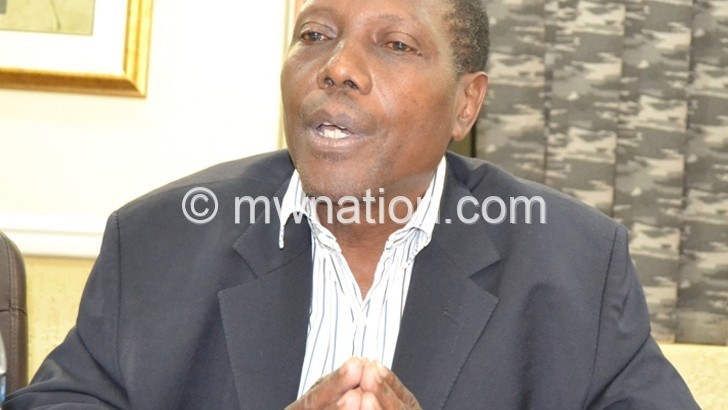Fresh push to prosecute errant controlling officers
Fresh calls have emerged for authorities to prosecute errant controlling officers while strengthening internal audit functions to end recurring challenges in public finance management.
The calls follow an analysis of reports from the National Audit Office (NAO) which reiterate financial management problems in government ministries, departments and agencies (MDAs) largely emanating from flouting of procedures, suspected incompetence and inefficiency.
In five financial years from 2014/15 to 2018/19, about K46.3 billion in public funds could either not be accounted for or was stolen from MDAs because controlling officers ignored set processes.
Recurring issues in audits include unsupported payment vouchers, missing payment vouchers and other important documents.

In addition, various MDAs continue to overlook observance of well-established procurement systems and procedures, disbursing fuel without recording or having anyone sign for it in register and failure to prepare bank reconciliation.
In response to a questionnaire, former Auditor General Stephen Kamphasa argued that between 10 and 30 percent of public funds is lost yearly due to this malpractice, suggesting criminal prosecution of those involved.
He said these issues recur as a result of failure by most controlling officers to put in place sound financial management control systems and procedures as required by laws, Treasury instructions, regulations and procedures.
Said Kamphasa: “One would be quick to say these controlling officers do not take heed of the AG observations and recommendations because no action is taken against them. It cannot be denied that sometimes controlling officers may deliberately behave in such a way if no disciplinary action is taken against them as if nothing is wrong.
“Controlling officers that do not take the Auditor General’s findings and recommendations seriously to address them create an impression that they are probably doing it deliberately to cover up fraud and irregularities.”
He said controlling officers should bear in mind that citizens expect them to manage public finances in an economic, efficient and effective manner to add value to the economy and not self-enrichment.
On his part, Ben Kaluwa, an economics professor at Chancellor College—a constituent college of the University of Malawi, argued that a governance lapse in MDAs has created a window of opportunity for officers to flout rules at will.
He said: “There have been a lot of issues in procurement; you ask why someone would hide documents for procuring goods? It is because that is how money is stolen from government. It has become a systemic problem due to lack of political will.
“You have a President who receives huge sums of money from individuals for campaign and doesn’t ask anything. Someone gives you, for instance, K90 million, and you can’t ask where the money came from? These people connive on deals, flout procurement procedures and share the money. Our politicians are compromised.”
A rapid analysis of AG’s report for the year ended 30 June 2018, sanctioned by the Integrity Platform and Oxfam Malawi, concluded that most of the issues raised in the Auditor General’s reports are recurring and need follow-up analysis.
The analysis recommended several interventions, including capacity assessment for leadership, financial management and procurement that will inform a formal capacity building training; governance assessment and internal control review to identify and document weaknesses in the internal control system and forensic investigation involving some issues that are clearly fraudulent.
Section 10 (1c) of the Public Finance Management Act, stipulates that each controlling officer is responsible for ensuring that all accounts and records relating to the functions and operations of the ministry are properly maintained.
Section 88 (1b) of the PFMA indicates that a person commits an offence if he or she refuses to produce any records in his or her possession when required to do so.





